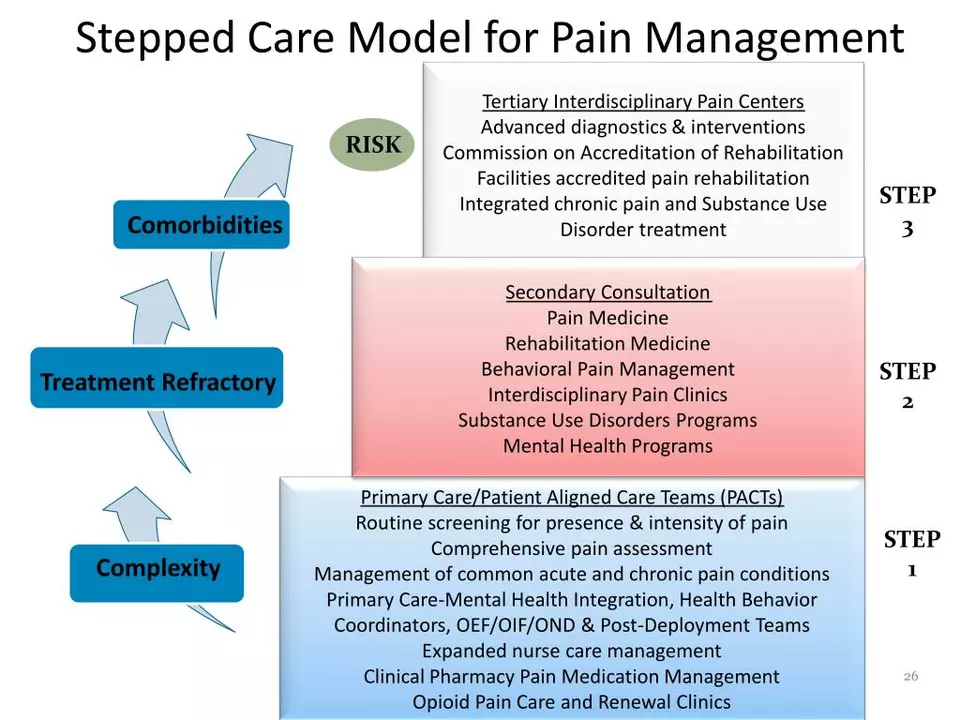Understanding the Potential Role of Medications & Supplements
If you’ve landed on this page, you’re probably wondering how different medicines and health products could fit into your routine. The articles under the Potential Role tag break down real‑world uses, benefits, and safety tips for a wide range of drugs—from antibiotics to mood stabilizers.
Each guide walks you through what the medication does, who might need it, and where it could replace or support another treatment. You’ll see practical examples like when Bactrim can be a cost‑effective choice for urinary infections, or how Escitalopram fits into an overall mental health plan.
Quick Picks from the Tag
Here are a few standouts you might want to read first:
- Buy Generic Bactrim Online Cheap: Safe Options and Prices (2025) – Shows how to spot legit pharmacies and compare prices.
- How to Safely Buy Escitalopram Online in the US – Gives a step‑by‑step ordering checklist.
- Simvastatin vs Alternatives: Zocor, Atorvastatin, Rosuvastatin – Helps you decide if a statin switch makes sense for you.
- Unisom: Sleep Aid Facts, Tips, and Safe Use Guide – Explains when this over‑the‑counter sleep aid is appropriate.
- 7 Alternatives to Levothyroxine: Options for Better Thyroid Health – Looks at natural supplements that could complement thyroid therapy.
Every article follows the same practical format: a short intro, what to check before buying, red‑flag warnings, and a clear action plan. No fluff, just what matters when you’re deciding if a drug has a place in your health toolbox.
How to Use This Information
First, identify the condition you’re dealing with—whether it’s high cholesterol, chronic pain, or occasional insomnia. Then scan the list for a medication that matches that need. Read the guide’s safety checklist; most of them flag common scams and tell you what a legitimate prescription should look like.
If you’re unsure whether a drug fits your situation, the articles suggest talking points for your doctor or tele‑medicine provider. For example, the prednisone guide lists questions about dosage length and potential side effects that help you have an informed conversation.
Remember, these guides are not a substitute for professional medical advice. They’re meant to empower you with facts so you can ask better questions and avoid risky purchases.
Keep coming back to the Potential Role tag whenever you spot a new medication in your pharmacy bag or hear about a supplement on TV. We update the list regularly, adding fresh pricing data, legal updates, and user experiences so you stay ahead of the curve.
Got a drug you want us to cover? Drop a comment or contact us through the site—your input helps shape future guides.
Butylscopolamine and its potential role in cancer pain management
I recently came across some fascinating research on butylscopolamine and its potential role in cancer pain management. Butylscopolamine, also known as hyoscine butylbromide, is a medication usually prescribed for gastrointestinal issues, but studies show that it may also help alleviate pain in cancer patients. This drug works by relaxing muscle spasms, which can provide relief from pain associated with tumors pressing on organs or nerves. It's important to note that while butylscopolamine may not completely eliminate cancer pain, it could potentially improve the quality of life for those suffering. As a blogger, I'm always intrigued by new developments in pain management, and I'm eager to see how this research progresses in the coming years.






